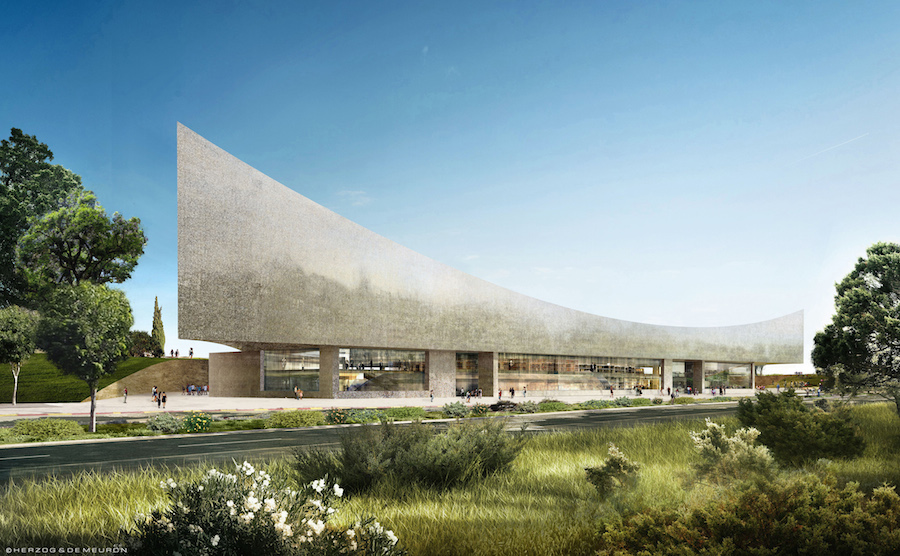Construction began in early April of a new design for Jerusalem's $200-million National Library of Israel, after the original project architect was replaced.
Design of the library, set to replace a structure in use since 1960, was awarded, in 2013, to Swiss architect Herzog & de Meuron. The firm was selected after a 2012 design award to New York City-based Israeli architect Rafi Segal was canceled. Oren Weinberg, library director, pointed to differences of opinion between building executives and the architect but did not provide any details. One online report noted a copyright dispute.
Herzog & de Meuron is best known for the design of the iconic bird's-nest stadium for the 2008 Beijing Olympics.
The library is located next to the Knesset, Israel’s parliament, in the city’s National Precinct and adjacent to other major national banks and ministries. The new building will replace the nearby existing library on the Givat Ram campus of the Hebrew University.
“The challenge for the new building is to combine traditional focus of the library on research with the needs for use as an educational facility and for exhibitions,” says Weinberg. Tel Aviv-based Amir Mann-Ami Shinhar Architects & Planners is serving as the executive architect. Britain’s ARUP will provide mechanical consulting.
According to online reports, Herzog & de Meuron beat Renzo Piano, Frank Gehry and Israeli architects Ammar Curiel, Kimmel Eshkolot and Kolker Kolker Epstein to win the contract.
The library complex, designed as a LEED Platinum sustainable building, includes solar panels on the roof and a rock store in the ground.
Covering 45,000 sq meters, the building includes six aboveground floors, comprising 15,000 sq m, and four belowground floors, totaling 30,000 sq m. The library will include traditional reading rooms, a cultural center, an art gallery and an auditorium. “The timetable calls for completion at the end of 2019 and for the facility to open to the public the following year,” says Weinberg.
Most of the funding for the project is being provided by Yad Hanadiv, the Rothschild family foundation that has financed construction of other national buildings in Israel. The Israeli government and a New York City-based private foundation are providing additional funding.


Post a comment to this article
Report Abusive Comment